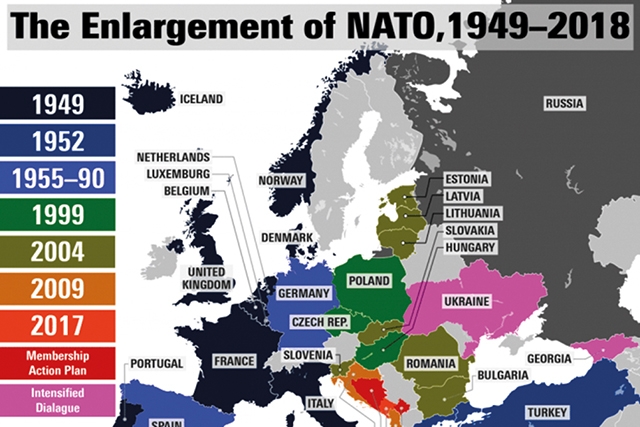More Opportunities for Georgia’s Security & Prosperity. Part I
When discussing modern international relations, we must be moderate in our conclusions, since the processes that create systems are still developing. Taking this outlook into consideration, we believe that several new aspects of a rearrangement of the balance of power are already visible on the international stage, and that enough practical material can be gathered for forecast and evaluation. I think there can no longer be any doubt that the attempts to re-define the global order that began shortly after the end of the Cold War, which were based on several commonly held principles and standards, are nowadays practically complete.
However, it is important to note that this process has proven to be quite productive, as it has significantly strengthened the positive results of the collapse of Communism and has offered the world a new wave of development. At the same time, in both old and new democracies, the trajectory of post-Cold War development has proven to be insufficient for the completion of civil or social models, and has not been able to ensure the sustainable long-term development that would have helped to avoid or effectively respond to various crises.
Current trends in international relations
Both leftist and rightist radicals, as well as populists, have skilfully taken advantage of the said difficulties. By brandishing slogans which appeal to the masses, they methodologically began to shake the very foundations of statehood and civil origins, and preferred to discuss issues of ‘no rules’ on the international stage. As a result, we have ended up with a reality in which the old norms and standards of international relations are quite useless, whereas a healthy alternative has not yet emerged.
In addition to intensifying various processes, the coronavirus pandemic has increased the urgency of the need to search for solutions. It has become vital, in every country, to quickly take various political, economic and social steps that can simplify acute domestic confrontations and ensure sufficient peace and breathing space in the medium term to allow national and global processes to be moved to the long-term development stage.
In general, seen through the prism of the balance of power, the global system only acknowledges a few basic models. At various stages of history, the balance that has emerged has sometimes been multipolar, sometimes bipolar, very seldom ‘2+’, and even more seldom unipolar or hegemonic. Where, in previous centuries, global hegemony was still possible, it has nowadays become impossible in practice for several reasons, the main one being the high degree of interdependence and interconnection between states.
But the question of a balance of power is not only theoretical: it is also very practical, since it defines this or the other rules of behaviour in foreign relations, especially for a country like ours in such a complex neighborhood. The complexity of the formation of our new world also differs according to the pandemic and post-pandemic factors, which encourage the transformation of old ‘centres of power’ and the emergence of new ones.
Another unavoidable result of this process is the multiplication of multifaceted and multilateral formats of interest in international relations, especially due to their regionalization. Accordingly, we end up with overlapping or conflicting interests in a concrete region which is defined by its specific characteristics, the national and international peculiarities of various states, and the influence of the balance of power on the ‘big picture’.
Aside from several basic features, the existing differences between regions are very prominent. For example, the Middle East has its own specificities, and the power play in the South China Sea different ones. Equally different are the attitudes of the world’s main actors towards NATO’s expansion into the Black Sea region; and the nature of interests in the Mediterranean area. At the same time, every single regional ‘center of power’, when considered separately, logically has an impact on the formation of the global balance of power.
Essentially, the system of international relations is being criss-crossed in a new way by regional interests whose unity is not stable or systemic everywhere, and is in some cases only based on temporary or situational partnerships. Equally noteworthy is the fact that the solidity or suitability of such regional unity mostly depends on the quality of the interest of key participants such as global or regional powers in the unity itself.
We must also consider the degree to which different countries are able (politically, militarily or economically) to project their interests across their region. The prospect of increased Western activity in the Black Sea region is also linked to the coincidence between interests and capabilities, as well as to Turkey’s growing Mediterranean ambitions or, if you like, the materialization of Russian and American influences over Syria.
By Victor Kipiani, Geocase Chair
Related:
Opportunities for Georgia’s Security & Prosperity. Part II












